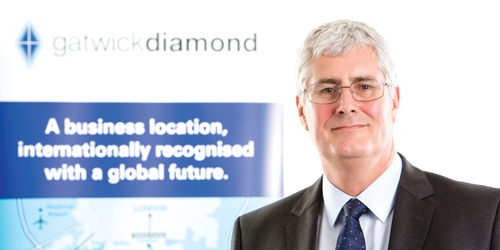
By Dean Orgill
Chairman of Mayo Wynne Baxter
www.mayowynnebaxter.co.uk • www.iod.com
We take it for granted that for our sports people to succeed they will put in a lot of training (guess what is looming around me as I write this month’s column). We also assume that our favourite musicians will be putting in a lot of practice – even those who feign nonchalance and try to appear to be winging it. We take it as read that professionals will maintain their expertise, with ongoing CPD requirements. But as business people how much do we value training, coaching or continuous education in business skills, the art of meetings and the skills necessary to run the business? In particular do we value it enough to undertake it personally, or is it something that we are happy to accept is a good idea for others to do, but we never quite get round to it ourselves?
It is said that if you simply practice doing the same thing without some analysis of what is going on, say in your technique as an athlete or your favourite piece as a musician, then what you are doing is simply practising and rehearsing your mistakes. External analysis, assistance and advice can offer a view that you simply cannot see for yourself no matter how genuinely self-critical you try to be.
But it is of course, relatively easy to claim to be an expert. Sitting in my armchair I can point out minute deficiencies in an athlete’s or a gymnast’s technique as I watch the HD slo-mo replays over and over. Realistically though I am sure that we all appreciate true expertise in training and education needs to be obtained from a trusted and reliable source.
One of the fundamental roles of the IoD is to promote expertise amongst business leaders. In that role it provides a variety and a significant number of courses on topics such as “The Role of the Director and The Board”, a “Director’s Role in Marketing and Strategy”, “the Director’s Role in Leading the Organisation” and “Practical Tips for becoming a NED” to name but four. There are also formal qualification courses leading to becoming a Chartered Director.
As you might expect many of these courses require significant commitment in time, and often financially too. But I would suggest that this must be seen in the context of an investment both for (and in) yourself, but also for the business you are running.
No-one has all of the answers. No-one is perfect, and we can all learn so that we can make improvements. These improvements may even be only “marginal gains” but as we can all see an accumulation of small gains can achieve a big difference.
May I therefore recommend a visit to www.iod.com where you can find details of courses and qualifications being put on locally, regionally and nationally (should you linger on the site you will also spot the many other advantages of membership).
JUST A THOUGHT
A hypothetical asteroid is heading towards your business, what are the 3 key things you save?






